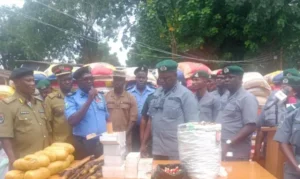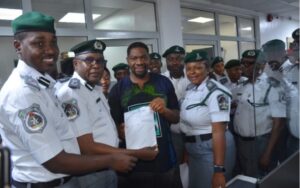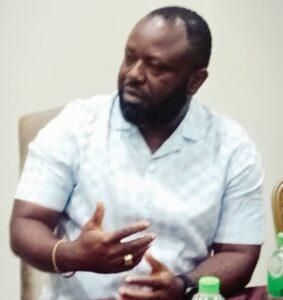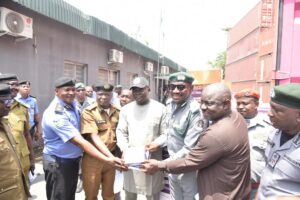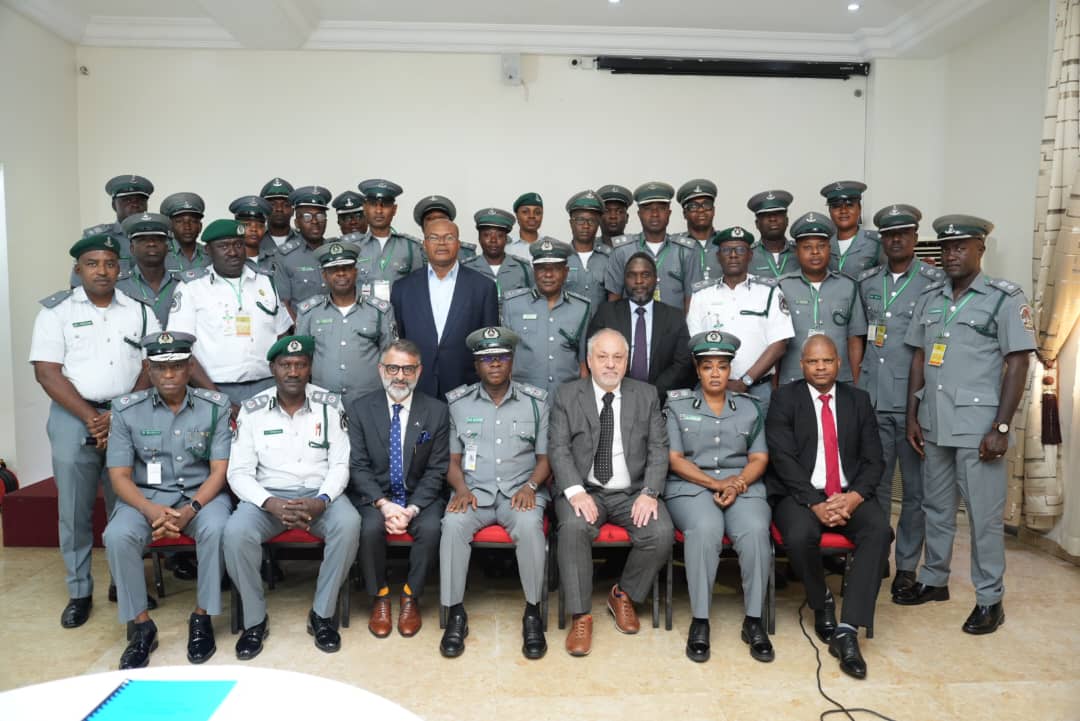
WCO, WBG, IMF Joins Forces with Nigeria Customs to Enhance Trade Facilitation
The World Customs Organization (WCO), World Bank Group (WBG), and International Monetary Fund (IMF) have joined forces with the Nigeria Customs Service to enhance trade facilitation in the country. This collaboration led to a workshop in Abuja from the 7th-11th October, 2024, where experts from the WCO, WBG, and IMF shared their knowledge with Nigeria Customs officials.
The Comptroller-General of Customs, Adewale Adeniyi, kicked off the opening ceremony of a five-day workshop on Post Clearance Audit (PCA) by expressing his heartfelt gratitude to the World Customs Organisation (WCO), World Bank Group (WBG), and International Monetary Fund (IMF) for their invaluable support in reforming PCA. Adekunle Oloyode, Assistant Comptroller-General of Customs in charge of Tariff and Trade, represented Adeniyi at the event.
He emphasized the significance of a workshop on Post Clearance Audit (PCA) in establishing a robust system that complements the Authorized Economic Operator (AEO) program. This initiative is crucial for strengthening the compliance framework and advancing trade facilitation efforts.
“PCA serves as a vital tool in balancing trade facilitation with compliance, ensuring our nation’s revenue security while promoting efficient and seamless trade.” he said.
The CGC stressed the importance of effective post-clearance audits in detecting and preventing commercial fraud, recovering lost revenue, and enhancing trade facilitation. He highlighted that Post-Clearance Audit (PCA) strikes a critical balance between trade facilitation and compliance.
Comptroller-General of Customs, Adeniyi, emphasized the pivotal role of a robust Post-Clearance Audit (PCA) framework in ensuring a secure trading environment, thereby facilitating seamless international trade.
“A strong PCA framework is crucial for safeguarding national revenue, detecting commercial fraud, and promoting compliance. It also fosters a secure trading environment, facilitating smoother international trade.” He added.
Outlining the key areas of the workshop, the CGC stated, “The focus includes risk management, targeting, developing data-driven methodologies to identify high-risk transactions, creating detailed audit plans for efficient execution, capacity building, leveraging international expertise and technology, among others.”
He urged participants to apply what they learned to strengthen the Service’s PCA system and protect national revenue.
Assistant Comptroller-General of Customs, Suleiman Chiroma from the Strategic Research and Policy Department of NCS, highlighted the significance of Post-Clearance Audit (PCA) in ensuring the seamless operation of customs processes. According to Chiroma, PCA introduces essential measures, methods, and approaches to facilitate smooth transactions. He emphasized that collaboration with key organizations is vital to the Nigeria Customs Service’s (NCS) success and survival.
Also speaking, World Customs Organisation expert, Russell Clark expressed his appreciation for the collaboration and commended the NCS’s dedication to improving its processes in facilitating trade.


